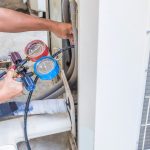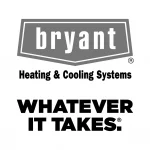R22 Freon Phaseout and What This Means for Homeowners
 One of the most widely used refrigerants for residential air conditioning systems is nearing the end of it’s phase out period. Amendments to the Clean Air Act, passed by Congress in 1990, and implemented by the EPA had scheduled R-22 to no longer be produced as of January 2020. For good reason, R-22 (also known as Freon), is a HCFC hydro-chlorofluorocarbon and is linked to being an Ozone-destroying chlorine.
One of the most widely used refrigerants for residential air conditioning systems is nearing the end of it’s phase out period. Amendments to the Clean Air Act, passed by Congress in 1990, and implemented by the EPA had scheduled R-22 to no longer be produced as of January 2020. For good reason, R-22 (also known as Freon), is a HCFC hydro-chlorofluorocarbon and is linked to being an Ozone-destroying chlorine.
The cards were stacked against R-22 since January 2010, when the manufacturers of new equipment that was using R-22 could no longer implement using the refrigerant. The newer residential heat pumps and AC units are now using ozone-friendly replacement refrigerants. For homeowners, some considerations need to be taken when it comes time to repair or replace these units. Since Freon will no longer be manufactured, what does the future hold for the cost to recharge the older units? As the supply decreases and the demand increases, cost of Freon most certainly will skyrocket.
The R-22 Regulation
One of the regulations of the Clean Air Act prevents the release of the R-22 into the atmosphere during installation, servicing or the replacement of HVAC equipment. The gas must be recovered and then recycled or then destroyed. If it is to be re-used it must still contain the same purity levels as new R-22. Which means after 2020, servicing of R-22 units will rely solely on the current supply and recycled gas.
There is no mandate to change out existing R-22 equipment, so servicing of the units will still be possible. Existing units cannot simply have the R-22 gas removed and new gas installed. Units will need to change the outdoor unit (condenser), evaporator coil and the copper lines, which makes retro-fitting residential units cost-prohibitive.
The New Gas
One of the new substitutes is R-410A. Just like Freon was the brand name for R-22, the new gases are manufactured and sold under the names as GENETRON, AZ-20 ®, SUVA 410A®, and Puron®.
 What does this mean for Homeowners?
What does this mean for Homeowners?
With residential systems having a serviceable life expectancy of about 15 years, and the Phase-Out period of Freon is over a long period of time, we feel that most homeowners will be looking at replacing their units before there will be the big demand to use recycled gas. However, for large commercial applications that may be a different story.
Another consideration is the possible rebates and money savings for installing newer energy efficient units. Saving dollars today on utility bills will pay for itself in the long run.
ABOUT THE AUTHOR
Clint Pharo is a local HVAC Contractor in Madison, WI. He and his team of HVAC professionals at Pharo Heating & Cooling cover a broad range of services in commercial buildings, new home construction, and residential homes and locally represent Bryant Heating and Cooling Products. He regularly posts on his company’s blog at www.PharoHeating.com.











